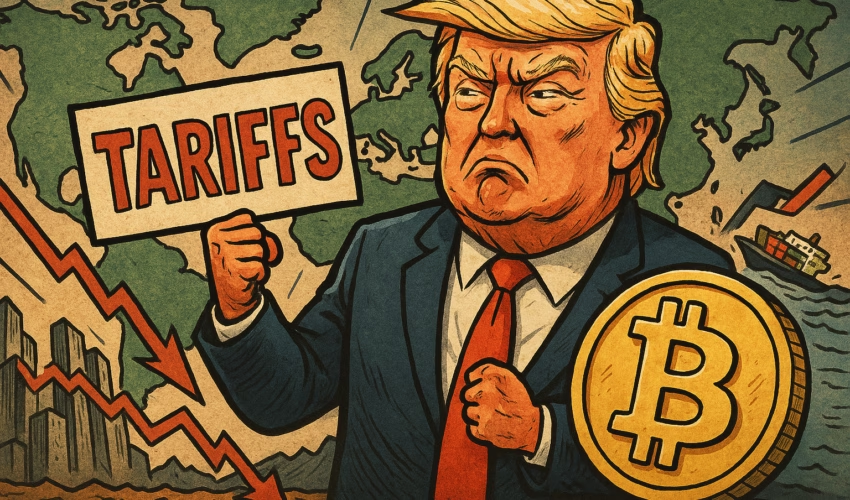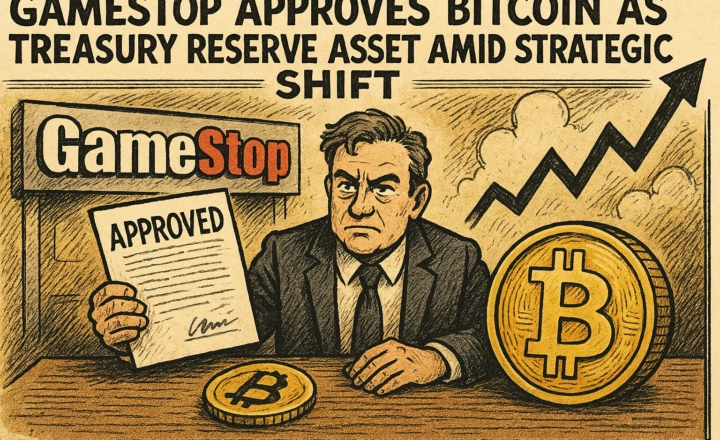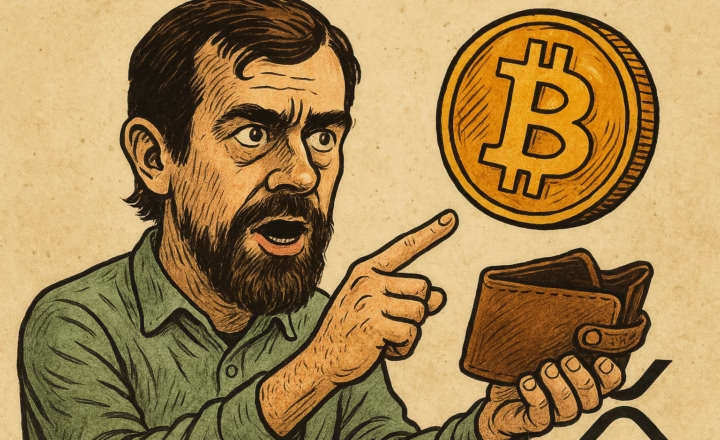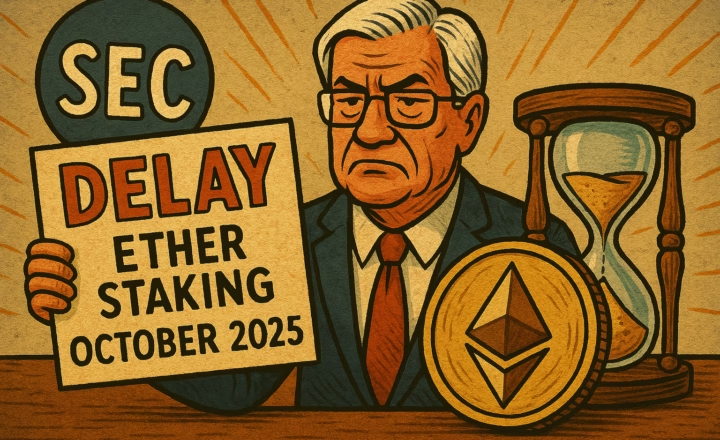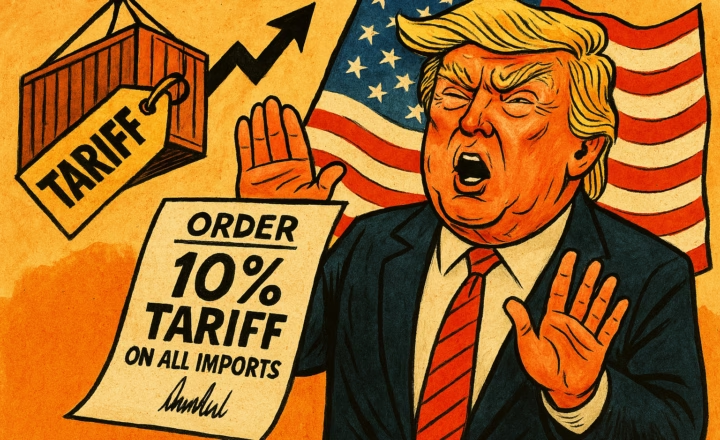Market Voices Warn of a “Financial War”—and Bitcoin as the Exit
As President Donald Trump doubles down on an aggressive global tariff regime, two influential voices from opposite ends of the financial spectrum—macro strategist Jeff Park and hedge fund titan Ray Dalio—are painting a stark picture of what lies ahead: deepening monetary imbalances, rising stagflation, and a fast-approaching monetary reset.
At the center of their analysis? Bitcoin—not just as a digital asset, but as the primary beneficiary of a global trade and currency restructuring.
“Tariffs might be just a temporary tool, but the permanent conclusion is that Bitcoin is not only going higher—but faster,” said Park in a widely circulated post on April 2, which has since racked up over 2.5 million views.
This is the only thing you need to read about tariffs to understand Bitcoin for 2025. This is undoubtedly my highest conviction macro trade for the year: Plaza Accord 2.0 is coming.
Bookmark this and revisit as the financial war unravels sending Bitcoin violently higher. pic.twitter.com/WxMB36Yv8o
— Jeff Park (@dgt10011) February 2, 2025
Park argues that Trump’s true goal is to weaken the U.S. dollar—a move reminiscent of the 1985 Plaza Accord, when global powers coordinated a dollar devaluation to correct trade imbalances. He calls this moment “Plaza Accord 2.0.”
Tariffs, Currency Tensions, and a New Financial Order
Dalio, in a more expansive macroeconomic breakdown, explains that tariffs are:
-
Inflationary for the importer
-
Deflationary for the exporter
-
Stagflationary for the global economy
Moreover, he frames tariffs as tools in great power conflicts, used to rebuild domestic production capacity, reduce capital dependencies, and prepare for geopolitical shocks.
“These policies will likely come with abrupt, unconventional changes, because the current economic order is dangerously unsustainable,” Dalio wrote.
— Ray Dalio (@RayDalio) April 2, 2025
Dalio warns of inevitable declines in global trade, capital flows, and trust in debt markets as countries reassess their dependencies on the U.S. dollar and American capital markets. He predicts that foreign trust in U.S. debt as a store of value will increasingly erode.
This weakening trust, paired with aggressive U.S. protectionism, creates the conditions for alternative assets—chief among them, Bitcoin—to rise as neutral, borderless hedges against fiat instability.
Bitcoin as the Escape Valve
Both analysts converge on one idea: Bitcoin is uniquely positioned to absorb the fallout of what Park calls “a financial war.”
“The asset to own therefore is Bitcoin,” he declares.
“In a world of weaker dollars and sovereign risk, fixed assets will fly while fiat collapses.”
As traditional risk models fail to account for currency devaluation, capital flight, and monetary manipulation, Bitcoin stands out as:
-
Non-sovereign
-
Supply-limited
-
Censorship-resistant
-
Increasingly liquid and institutionally accepted
Dalio does not explicitly name Bitcoin, but his framework implicitly validates it: a store of value that is outside the system, immune to geopolitical distortions, and valued precisely because of its independence.
Final Thoughts: The Trade War Is Monetary—and Bitcoin Is Winning
What began as tariff skirmishes may now evolve into a global revaluation of money, debt, and trust. Trump’s “medicine” for the U.S. economy may be the fever that drives Bitcoin to new highs.
If Park and Dalio are right, this is not just a trade dispute—it is a generational transition in how the world understands money. And in that transition, Bitcoin may be the biggest beneficiary—not as a speculative asset, but as the foundation of a parallel system born from distrust and digital sovereignty.


